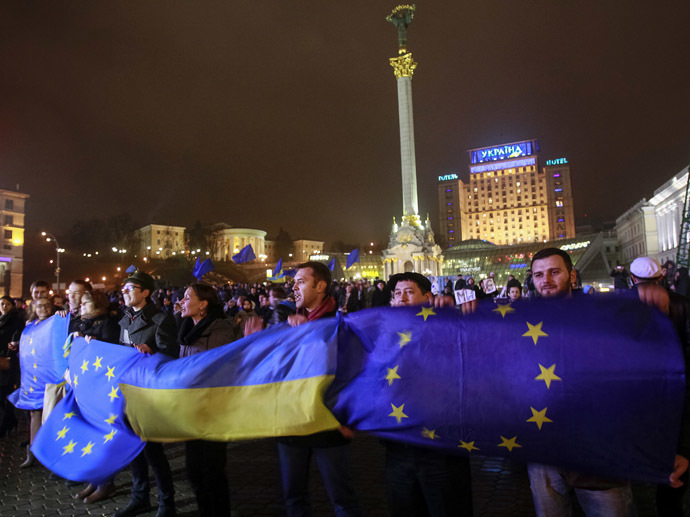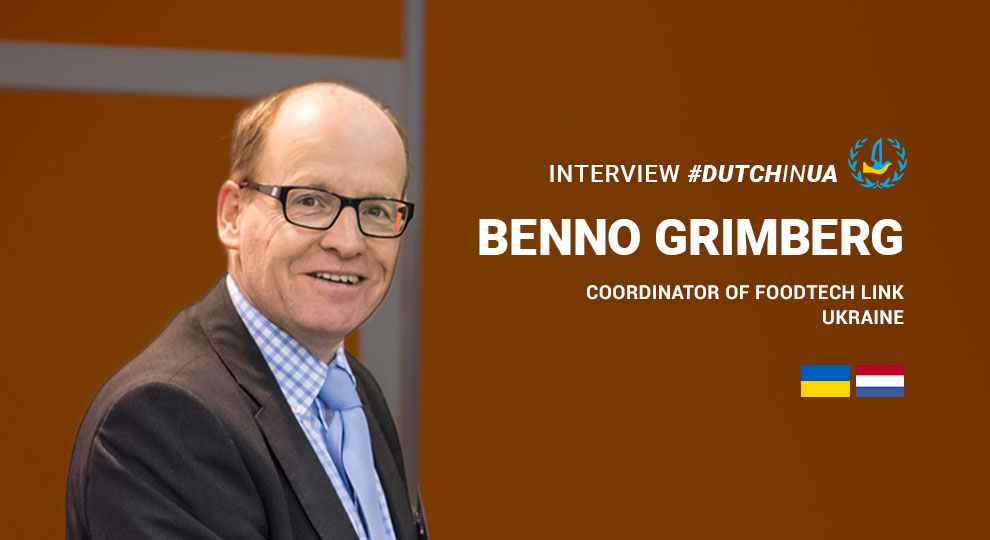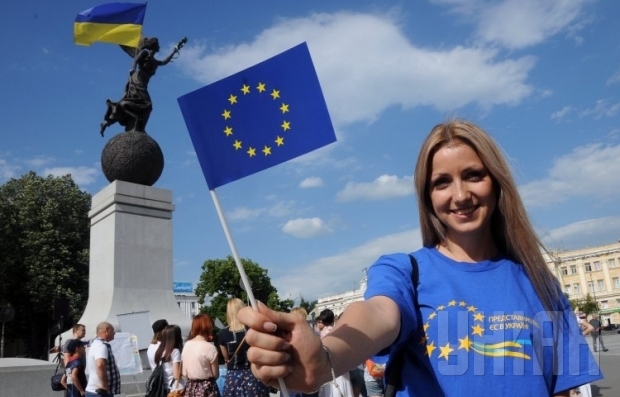On April 6, the Netherlands will vote in a referendum to approve the Association Agreement between the European Union and Ukraine. It includes a free trade pact and stipulations for Ukrainian economic and political reform. It all sounds boring enough to be settled by politicians and bureaucrats, and not a matter for a referendum.
But make no mistake, this is a vote of great importance for the future of Europe. It is vote on whether or not the European Union is worth fighting for against its internal and external enemies. The existence of this referendum is itself ample demonstration that those enemies are real and that they are active. The Dutch response will say a great deal about how ready the European Union is to defend itself and its founding values.
The life and death struggles for national independence and individual freedom in Europe were thought to be nearly over when the Soviet Union finally collapsed in 1991. It was a time of jubilation, especially for those like myself who had spent generations on the wrong side of the Iron Curtain. This feeling led to complacency and, like an unchallenged immune system, to an inability to respond now that threats have appeared.
Ukraine has had its moments of liberation and jubilation, too, but its fight for independence is not over. Two years ago, Ukraine became the first European country since World War II to have its borders breached and its territory annexed by force. Vladimir Putin could not accept that his corrupt puppet regime in Kyiv was being rejected by Ukrainians. Ukraine’s historic relations with Russia would make it very bad example should it be allowed to escape Moscow’s orbit and embrace European democracy.
Many may have forgotten that the boringly titled Association Agreement has already been defended with blood and fire in Ukraine. The Maidan Revolution that resulted in Putin’s crony Viktor Yanukovych fleeing the palace he had filled with riches was a direct consequence of Yanukovych’s rejection of the Agreement in favor of aligning more closely with Moscow. The bloody event of Maidan that led to Yanukovych’s ouster were quickly followed by the Russian invasion of Crimea and Eastern Ukraine, where the Kremlin’s forces are still very active. Several thousand members of Ukraine’s armed forces have died as have even more civilians—not including the 298 killed when Malaysia Airlines Flight 17 was shot down over Eastern Ukraine by a Russian missile on July 14, 2014. They have all died on the front line of a battle for the European dream, as well as for the territorial integrity of Ukraine.
Putin was shocked to discover that the Ukrainian people don’t want to join him, not even the ethnic Russians in the East. They have joined the Ukrainian military to fight him off instead. So Putin’s goal became the destabilization and destruction of the Ukrainian state, utilizing hybrid warfare and propaganda befitting his KGB background. Ukraine is poor and vulnerable politically and economically and its 45 million citizens urgently need support against Moscow’s predations. The Association Agreement is one way to provide that support.
In order to better isolate Ukraine, Putin has also turned some of these methods against his rival for Ukraine’s loyalty, the European Union. The Kremlin supports far-right and anti-European Union groups across the continent, some more openly than others. Russia funds propaganda that spreads negativity and discord and targets pro-Europe politicians. Companies controlled by Putin’s inner circle lobby for the lifting of the sanctions put in place after the Crimean annexation—and find many Western politicians willing to collaborate.
The flood of immigrants to Europe and the xenophobia and political shockwaves they produce have become the latest arrows in Putin’s arsenal of destabilization and disunity. The Russian military’s continued bombing of civilians in Syria has increased this flow while the Kremlin’s allies in Europe exploit them to make political gains.
Angela Merkel is Putin’s main target and in Germany, as in nearly every Western democracy, the openness of the media and political systems make it dangerously vulnerable to aggressive outside influence. The Netherlands is no exception and there is no doubt at all that the Kremlin has been active in promoting the April 6 referendum.
People don’t like conflict and often prefer to live in denial even as the consequences of inaction grow more and more acute. Putin is well aware of this tendency and so he limits his aggression to ways unlikely to provoke a direct response. He is very happy to allow the leaders of the free world make excuses for his deadly actions—and unfortunately they continue to oblige him.
The only way to stop this perilous trend is to stand up to the forces that would tear Europe apart. Crimea is Ukraine and Ukraine is Europe. The Association Agreement is a lifeline to the free world that Ukraine desperately needs. If Europe, beginning with the Netherlands, attempts to cut this lifeline the same blade will soon slice the European Union to pieces. If that happens, the only jubilation will be in the halls of the Kremlin.






